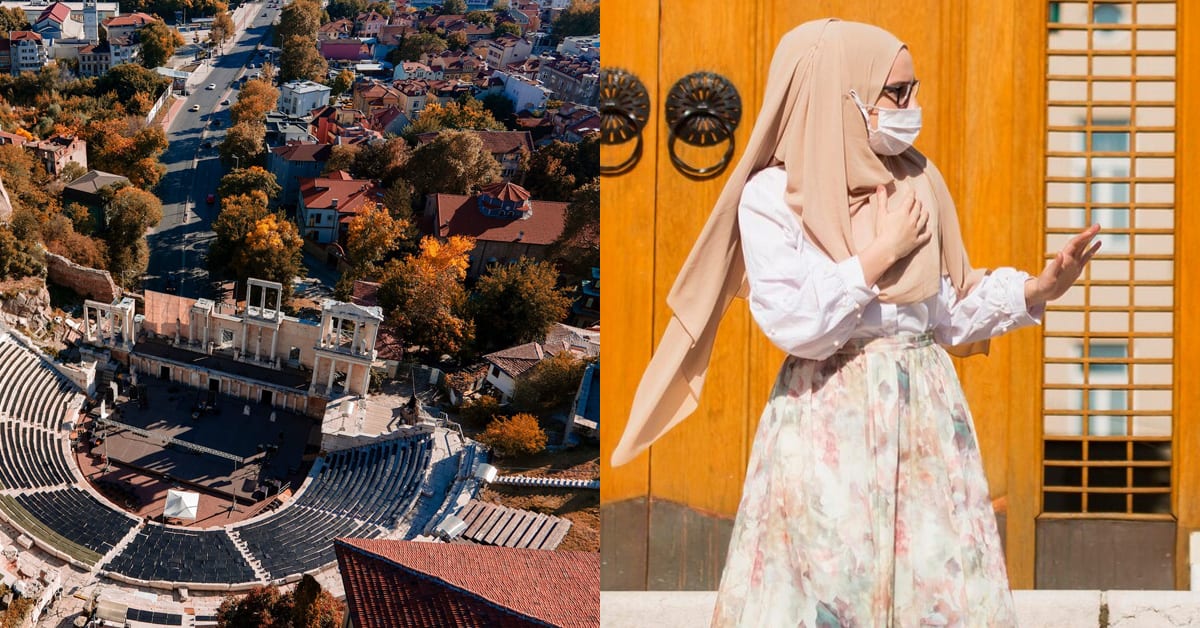Bulgaria is a country located in Southeast Europe, known for its rich history, diverse culture, and stunning natural beauty. With a population of over 7 million people, Bulgaria is home to a significant Muslim community, making it an ideal destination for Muslim travellers. Additionally, the presence of the Muslim community ensures the availability of halal food for those seeking dietary options in line with Islamic principles.
The country has a long and fascinating history of Islamic influence, with the Ottoman Empire ruling over Bulgaria for nearly 500 years.
Today, Bulgaria is a modern and welcoming country that offers a unique blend of Islamic heritage and contemporary culture.
Is Bulgaria Muslim friendly?
Is Bulgaria Muslim friendly?
Bulgaria is generally Muslim-friendly, as it has a history of religious tolerance and diversity.
The country has a significant Muslim minority, comprising about 10-15% of the population, mainly consisting of ethnic Turks and Bulgarian Muslims (Pomaks).
There are numerous mosques and Islamic cultural centers throughout the country, particularly in areas with higher Muslim populations.
However, like any country, individual experiences may vary, and some Muslims may encounter occasional instances of discrimination or prejudice.
It is essential to be respectful of local customs and traditions and be aware of the cultural differences that may exist.
Bulgaria can be considered a Muslim-friendly destination, but it is always good to be prepared and informed about the local context.
Does Bulgaria have halal food?
Yes, Bulgaria has halal food available in some restaurants and supermarkets, especially in areas with a significant Muslim population.
Some hotels and resorts also offer halal food options for their guests.
However, it may not be as widely available as in other Muslim-majority countries.
Checking with the restaurant or hotel beforehand is recommended to ensure the food is halal.
Is Bulgaria safe for Muslim?
Yes, Bulgaria is generally considered a safe country for Muslims.
The country has a significant Muslim population, and there are mosques and Islamic centres throughout the country.
However, like any other country, it is important to be aware of your surroundings and take necessary precautions to ensure your safety.
Are there many Muslims in Bulgaria?
Yes, there is a Muslim minority in Bulgaria, which makes up around 10% of the population.
Most of them are ethnic Turks, but there are also some Roma and Pomaks (Bulgarian-speaking Muslims).
The majority of Muslims in Bulgaria live in the southern part of the country, near the border with Turkey.
What is the largest mosque in Bulgaria?
The largest mosque in Bulgaria is the Banya Bashi Mosque, located in the capital city of Sofia.
It was built in the 16th century during the Ottoman rule and is one of the few remaining examples of Islamic architecture in the country.
The mosque has a distinctive dome and minaret and can accommodate up to 700 worshippers.
It is open to visitors and tourists, but visitors must dress modestly and remove their shoes before entering.
Is Bulgaria a good place to live in for Muslims?
Bulgaria is a secular country with a Muslim minority population, and there are mosques and halal food options available.
However, there have been reports of discrimination and prejudice against Muslims in Bulgaria.
It is important to research and consider all factors before making a decision to live in any country.
As a Muslim, what should I prepare before travelling to Bulgaria?
I do not have personal beliefs or religious affiliations. However, here are some general tips for any traveller, including Muslims, visiting Bulgaria:
1. Check the visa requirements and make sure you have all the necessary documents.
2. Research the local customs and traditions, especially if you plan to visit religious sites.
3. Pack appropriate clothing, especially if you plan to visit mosques or other religious sites. Women should cover their heads and wear modest clothing.
4. Learn some basic Bulgarian phrases to help you communicate with locals.
5. Check the availability of halal food and prayer facilities in the areas you plan to visit.
6. Be respectful of local customs and traditions, and avoid any behavior that may be considered offensive or disrespectful.
7. Make sure you have travel insurance that covers medical emergencies and other unexpected events.
8. Keep your passport and other important documents in a safe place, and be aware of your surroundings at all times.

